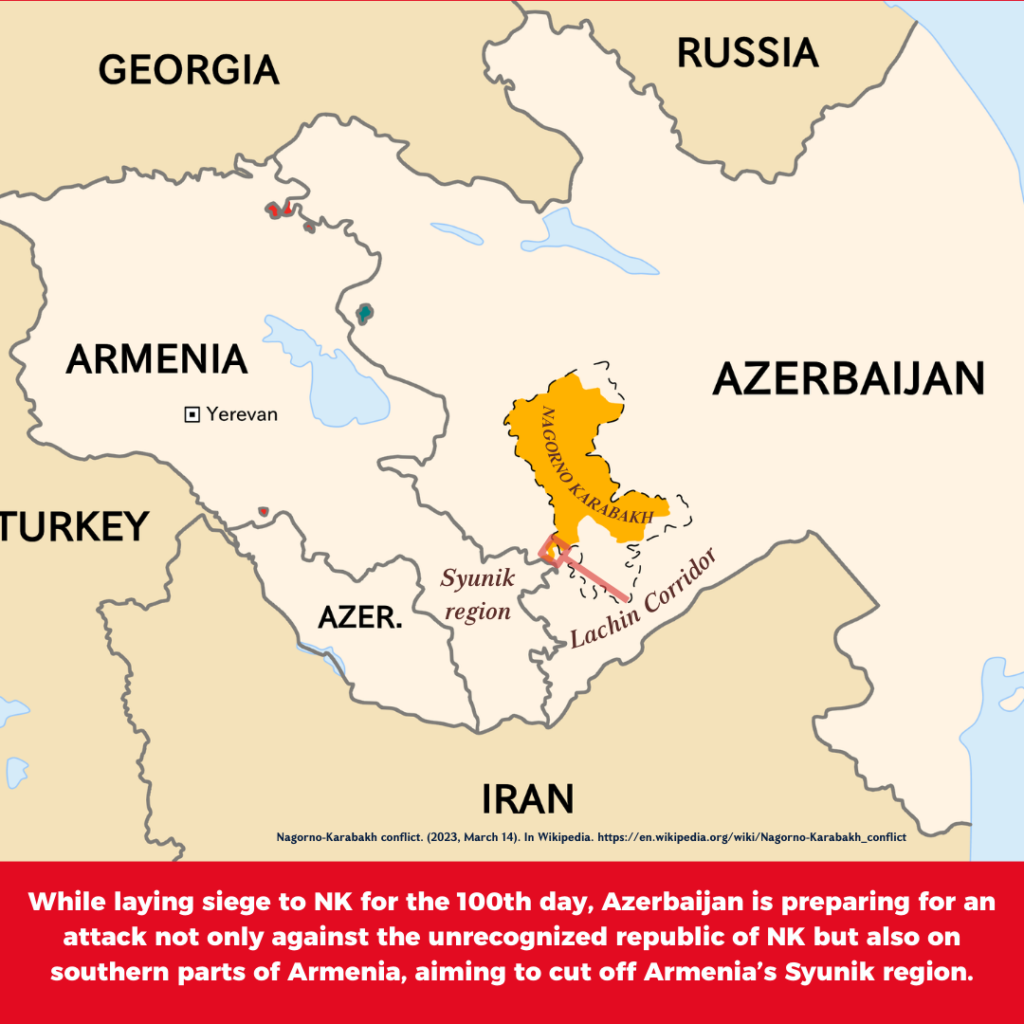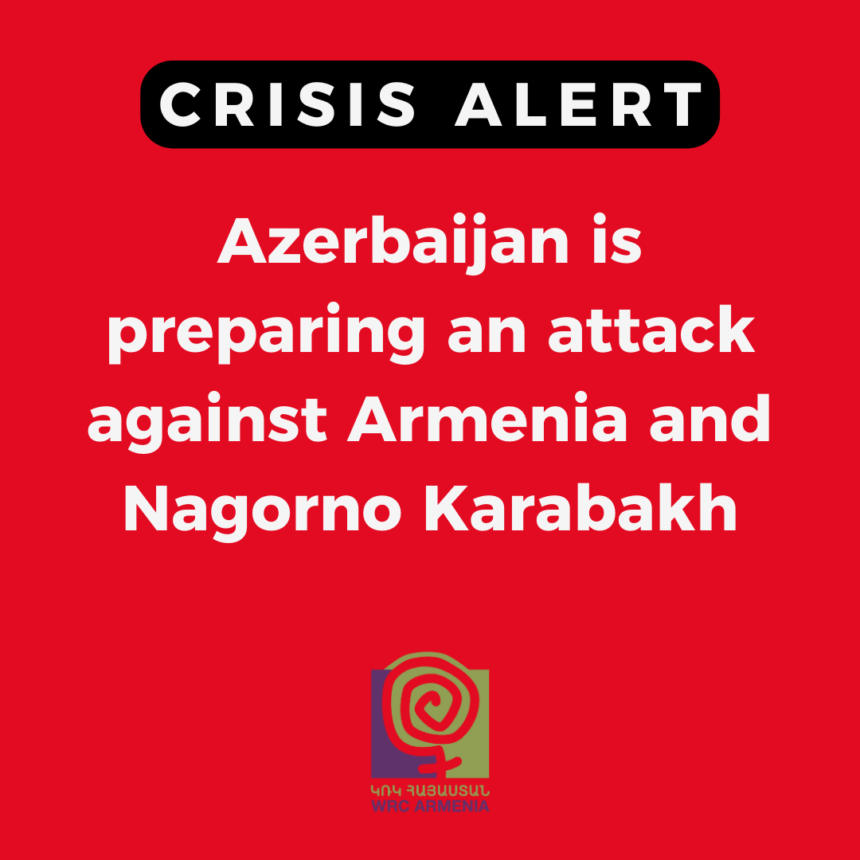It is the 100th day since December 12, 2022, that the Lachin Corridor, the lifeline of the unrecognized Republic of Nagorno Karabakh (Artsakh), has been closed down by Azerbaijani state-sponsored bogus eco-activists. This has already resulted in a humanitarian crisis in NK- widespread food and supplies shortages have affected the lives of 120,000 ethnic Armenians, (especially women and children and other marginalized groups) trapped by the Aliyev dictatorial regime. These humanitarian issues have been collaborated by the February 9th, 2023 Amnesty International report which especially emphasized reproductive rights issues. The crisis is exacerbated by the fact that the bellicose rhetoric of the Aliyev regime has only been growing more hostile and vindictive. On January 10th, 2023 Aliyev told NK Armenians who do not wish to live as Azerbaijani citizens, “[…] the road is not closed, it is open. They can leave, they can go by themselves, no one will hinder them.’’ Since then he has made explicit threats against the NK Armenians and made up claims for Armenia-proper. Meanwhile, the International Court of Justice on February 22nd, 2023 concluded that the ‘connection between Nagorno-Karabakh and Armenia via the Lachin Corridor has been disrupted’ and ‘Azerbaijan should take all measures at its disposal to ensure unimpeded movement of persons, vehicles, and cargo along the Lachin Corridor in both directions’. Nonetheless, on March 5th, 2023 Azerbaijani military officers ambushed Armenian police officers inside the Armenian-controlled NK killing three. This is a consequence of the impunity that the regime in Baku enjoys due to being an oil supplier for EU countries, Baku deploys this impunity to cause havoc in the region.
Reports by international watchdog organizations such as Crisis Group predict that this spring Azerbaijan is preparing for an attack not only against the unrecognized republic of NK but also on southern parts of Armenia, aiming to cut off Armenia’s Syunik region. Reports by our regional partners indicate that Azerbaijan is in fact bringing troops closer to the southern border with Armenia. On March 14, 2023, Prime Minister Nikol Pashinyan also confirmed that war alongside the Armenian-Azerbaijani border as well as in NK was highly possible. If Azerbaijan in fact starts another war, Baku will effectively ethnically cleanse NK’s 120,000 population and besiege the Armenian citizens living in the Syunik region. This has the potential to rearrange the geopolitical configurations of the Caucasus region which will have an irreparable impact on Armenians and the wider region.
We call on the international community, including our partners and decision-makers in foreign governments as well as international organizations, to pay attention to developments in and around Armenia that can potentially cause a human catastrophe. Another war means thousands of displaced people most of whom will be women and children. It can affect the lives of thousands of civilians, mostly women, and children, increasing the risk of re-displacement for those NK Armenians who had settled in Syunik after the Second NK war in 2020. Moreover, a new war might imperil the very foundations of Armenian statehood.
We call on:
- The Russian peacekeepers to fulfill their duty as per the Nov 9th, 2020 agreement signed by the heads of states of Armenia, Azerbaijan, and Russia.
- The EU to apply pressure on Azerbaijan to let the EU monitoring mission also observe the Azerbaijani side of the Armenian-Azerbaijani border which will also encourage more communication between Armenian and Azerbaijani militaries.
- The EU, Russia, and the US to apply pressure on the conflict parties to bring them to the negotiation table to prevent a second war in less than three years.
- International organizations such as the UN and its different agencies, Amnesty International, Human Right Watch, and Crisis Group to monitor the situation in the region and structure their reports around the needs of the most marginalized groups, in particular different groups of women.


 Legal advice
Legal advice

Leave a Reply